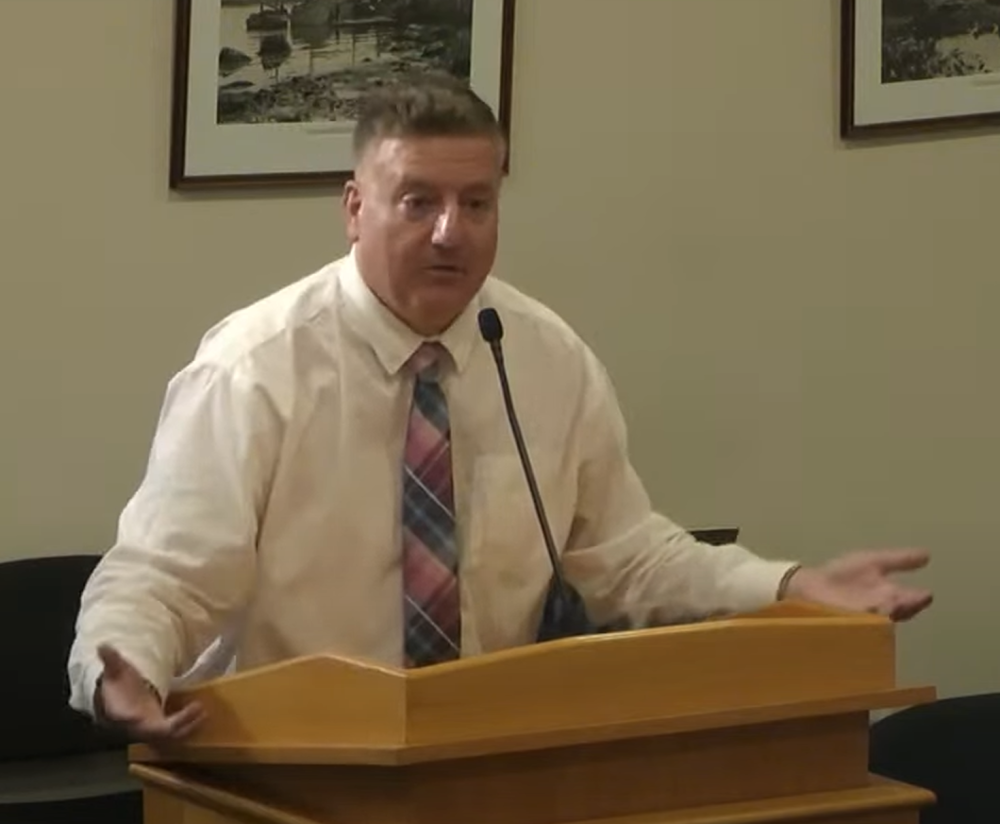Dartmouth, New Bedford officials talk partnership against proposed trash transfer station
Parallel Products, a waste management company, is looking to establish a new trash transfer station in the New Bedford Business Park, and now one member of New Bedford’s city council is looking for the town of Dartmouth’s help to prevent this from happening.
On Monday, Sept. 8, New Bedford City Councilman Leo Choquette came before the Select Board to explain what the proposed project is and how it could affect the town of Dartmouth.
The transfer station would operate 24 hours a day, bringing up to 1,500 tons of waste from across the Commonwealth to New Bedford in over 350 truck trips per day.
“This isn’t even really New Bedford trash,” Choquette said. “We’re importing a massive amount of garbage from the rest of the Commonwealth into the north end of New Bedford.”
Choquette’s goal in partnering with the town of Dartmouth is to pen a letter to federal legislators, including Congressman Bill Keating, Senators Elizabeth Warren and Ed Markey, and the EPA.
Select Board members will meet with the New Bedford City Council to discuss what would be included in the letter to federal legislators.
Chair Heidi Silva Brooks proposed inviting Director of Public Health Chris Michaud to the meeting and making sure Dartmouth representatives from the Greater New Bedford Regional Refuse District are aware the meeting is taking place.
“We can hear the message and then we can craft something articulate,” Brooks said.
Select Board member Shawn McDonald said he would sign on “immediately” with the councilman’s effort to put a stop to the proposed transfer station.
McDonald said the town could tell representatives at the Greater New Bedford Regional Refuse Management District that they don’t want parallel trash at Crapo Hill Landfill to “keep Crapo Hill for Dartmouth and New Bedford only.”
“Here we had a project that started out between three communities, which eventually became just New Bedford and Dartmouth, and it was only supposed to be in finite years,” he said. “We’re looking at probably 30 to 35 years on a landfill unearthed since 1989.”
The station is intended to give New Bedford a new outlet for trash and help replace the Crapo Hill Landfill as it reaches capacity.
If the station is approved, it would be the largest in Massachusetts “by far,” according to Choquette.
Choquette said his immediate concerns are based on the water and what could happen if the transfer station were to breach.
According to Choquette, if there were to be a breach, the water in the Acushnet Cedar Swamp, which surrounds the New Bedford Business Park, could leach into the headwaters for the Paskamansett River.
“The Paskamansett River flows right through the center of your downtown,” Choquette said. “That eventually would get up to Apponagansett Bay.
Choquette said arguments in favor of the landfill included the fact that the station would provide 75 jobs for New Bedford residents. It would also have a tipping fee of approximately $800,000 and a tax imprint on taxes of about $1.3 million.
But for Choquette, this doesn’t counterbalance the potential for damage.
According to Choquette, the landfill would cause home values to drop by 10 to 25% for everyone who lives within a mile of the station.
He noted, “Not even the Pope would get my vote to … outweigh 1,500 homes.”
Choquette said that the Commonwealth of Massachusetts ruled via the Massachusetts Department of Environmental Protection that the trash transfer station would be allowed and also beneficial to the community.
“I don’t know what environment they’re protecting, but it’s certainly not ours,” he said.
The New Bedford Board of Health has been discussing whether to approve the proposed transfer station, and if they vote in favor of the station, the only body left to overturn the decision would be the EPA, according to Choquette.
He noted that if the Board of Health doesn't vote it down, “we would have to appeal it right away, lest construction begin.”















